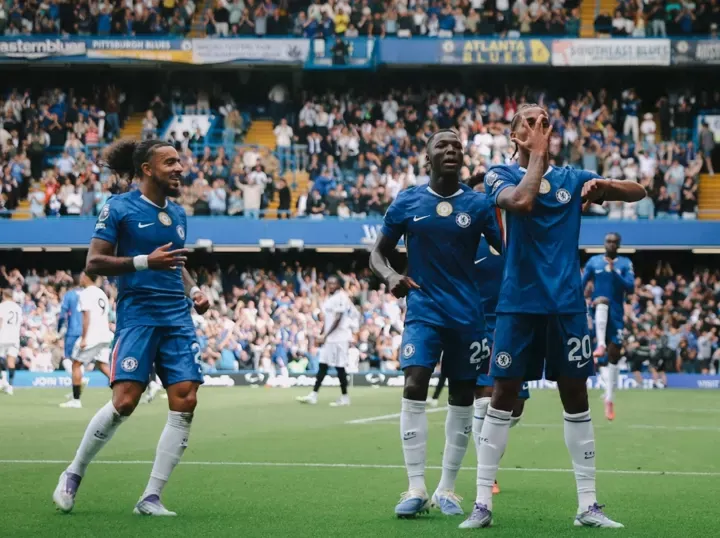
Chelsea’s Title Credentials: The Missing Piece in the Puzzle
Three games into the 2025/26 Premier League season, Chelsea fans find themselves in familiar territory: hopeful, but unconvinced about the team’s title credentials. A frustrating 0-0 opening-day stalemate with Crystal Palace, a rollercoaster 5-1 comeback against West Ham, and a VAR-influenced 2-0 win over Fulham have offered little clarity.
Despite heavy summer spending, the same question marks that haunted last season continue to hover: is this Chelsea side truly built to compete with Manchester City, Arsenal, and Liverpool across 38 games?
On paper, this is one of the most expensively assembled squads in the league. Over £1.2 billion has been invested in the last three transfer windows alone. Yet on the pitch, many of last season’s frailties—particularly in creativity and defensive organisation—remain unresolved.
Goalkeeping Concerns: Sánchez Still Unconvincing
Robert Sánchez continues as Chelsea’s first-choice goalkeeper, but unease lingers. The Spaniard ended last season with a save percentage of just 67%, ranking 15th among Premier League keepers who played 20 or more matches. His struggles with decision-making, timing, command of his area, and overall consistency raise concerns that Chelsea could pay dearly in tight matches. For a side with title ambitions, that’s nowhere near good enough. A team looking to win the league cannot afford a goalkeeper who inspires uncertainty at the back.
Defensive Jitters: Old Problems Resurface
Defensively, the numbers are equally concerning. Chelsea conceded 63 goals in all competitions last season, their worst defensive record in over a decade. Early signs suggest they still lack composure against direct, pace-driven attackers. Against Palace, Eberechi Eze completed six take-ons—the most by any player on the opening weekend—and consistently exploited space between Chelsea’s midfield and defence. Fulham’s Alex Iwobi and Josh King also caused problems, creating more chances in that match than any Chelsea midfielder, highlighting the Blues’ struggle to cope with movement and pace.
Midfield Without a Conductor
In midfield, Moisés Caicedo and Enzo Fernández form a disciplined double pivot, but creativity and invention remain lacking. Enzo, touted as Chelsea’s playmaking hub, has managed just 12 assists in 85 league appearances for the club.
By comparison, Kevin De Bruyne has produced 15 or more assists in five different Premier League seasons, while Bruno Fernandes, in a struggling Manchester United side, created 91 chances, 10 assists, 18 goal involvements, and 31 through balls last season alone. Enzo’s most productive campaign at Chelsea (2024/25) saw him rank fourth in the league for chances created, but he still only delivered 13 goal involvements and 13 completed through balls.
The reality is simple: creativity wins titles, and Chelsea don’t have enough of it in midfield.
Recruitment Strategy: Talent but a Glaring Gap
Chelsea’s summer recruitment tilted heavily towards attackers. Liam Delap provides a physical focal point, while João Pedro has impressed with his versatility. Yet the glaring omission is a natural number 10. History tells us that to win the league, you need a player capable of double-digit assists. Chelsea’s own title-winning history reinforces this: in four of their five Premier League triumphs, they had the league’s top assister—Frank Lampard (twice), Didier Drogba, and Cesc Fàbregas. At present, nobody in this squad looks capable of filling that role consistently.
Cole Palmer has been trialled as a number 10, but his natural tendency to drift wide reduces his central influence. Enzo lacks incision and creative spark. João Pedro and Willian Estevão thrive higher up the pitch. Without a central creator, Chelsea risk becoming predictable, relying too heavily on wing play and overlapping full-backs. This theme is further underlined by the club’s transfer strategy, with Alejandro Garnacho and Jamie Bynoe-Gittens added to strengthen wide areas rather than central invention.
Tactical Stubbornness or Necessary Evolution?
Modern football’s obsession with inverted full-backs and double pivots has made many teams—including Chelsea—rigid and risk-averse. Building from the back with endless sideways passing is designed to create control, drawing opponents out of shape. But too often, it results in sterile possession.
Last season, Chelsea averaged over 55% possession, yet only managed 1.6 goals per game, ranking seventh in the league. Possession without penetration doesn’t win titles. At Chelsea, the burden of transitioning from defence to attack currently falls on Enzo, but his game is more about recycling possession than delivering defence-splitting passes. Against low blocks, Chelsea look blunt and uninspired.
A Lesson from Conte's book
History offers a clear reminder. In 2016/17, Antonio Conte’s Chelsea struggled until he reintroduced Cesc Fàbregas to the starting XI. His vision and passing transformed the team, forging a devastating partnership with Diego Costa and contributing 12 assists. Chelsea went on to lift the title with 93 points. Without Fàbregas, that side looked one-dimensional.
Monday Night Football analysis of Diego Costa and Cesc Fabregas before both their debuts against Burnley. 🤯 [@CFCRetro] pic.twitter.com/Nn5XZIp4y1
— CFC-Blues (@CFCBlues_com) June 12, 2025
One Piece Away
Enzo Maresca has instilled tactical discipline and attacking intent, but without a genuine playmaker, Chelsea risk becoming predictable. The modern game may emphasise systems and structures, but titles are still won by players who can unlock defences with one decisive pass.
For all of Chelsea’s spending and tactical tweaks, the truth is blunt: without a genuine number 10, their title hopes look fragile. Unless Chelsea find their own De Bruyne, Ødegaard, or Fàbregas—someone who can consistently dictate tempo and create 10–15 assists a season—they will remain a step behind the real contenders.
The pieces are there: João Pedro looks electric, Delap adds a focal point, and Caicedo secures the midfield. But without that creative heartbeat, Chelsea are a team with talent but no conductor. And in the Premier League, that is the difference between lifting the trophy or watching City, Arsenal, or Liverpool do it again.